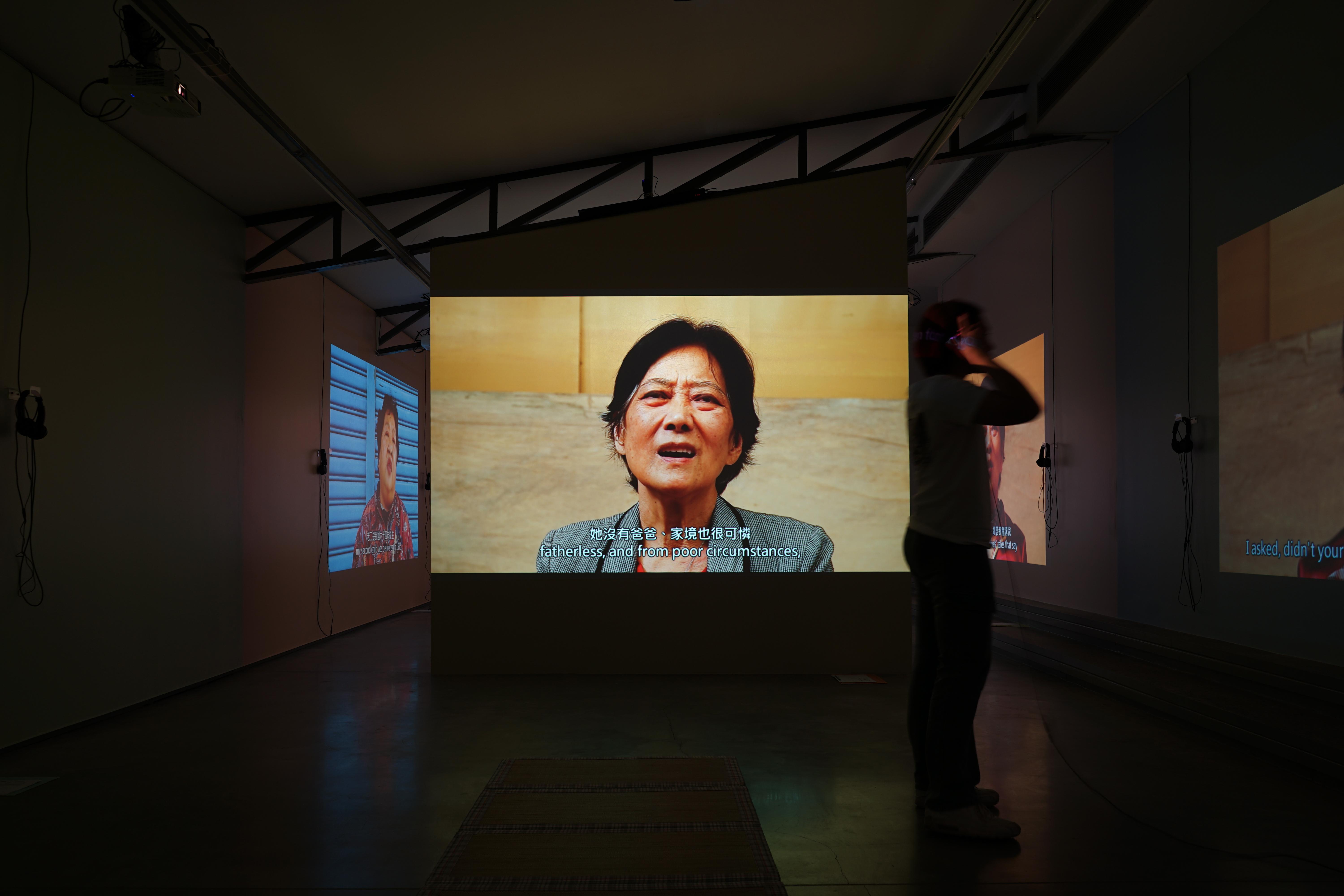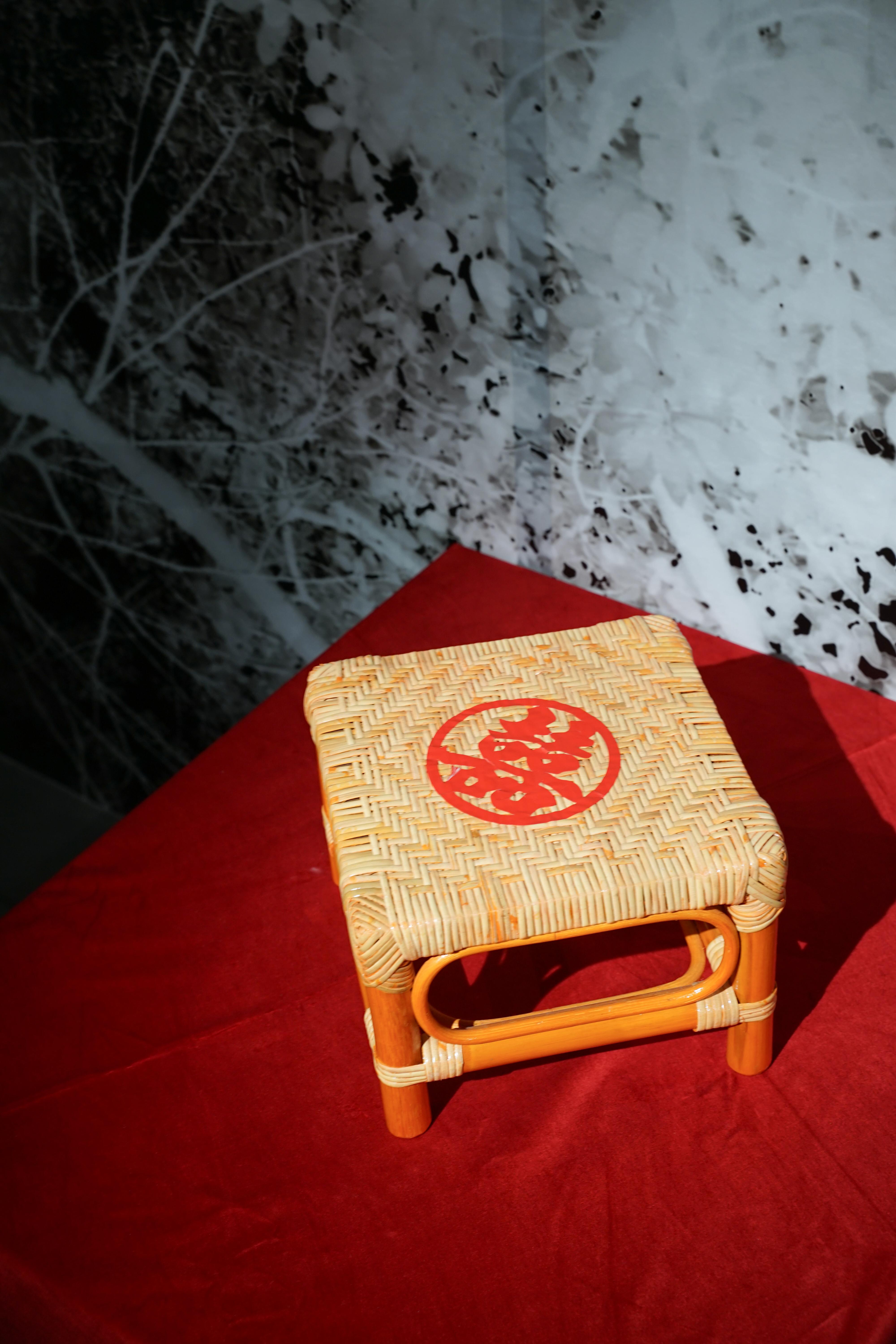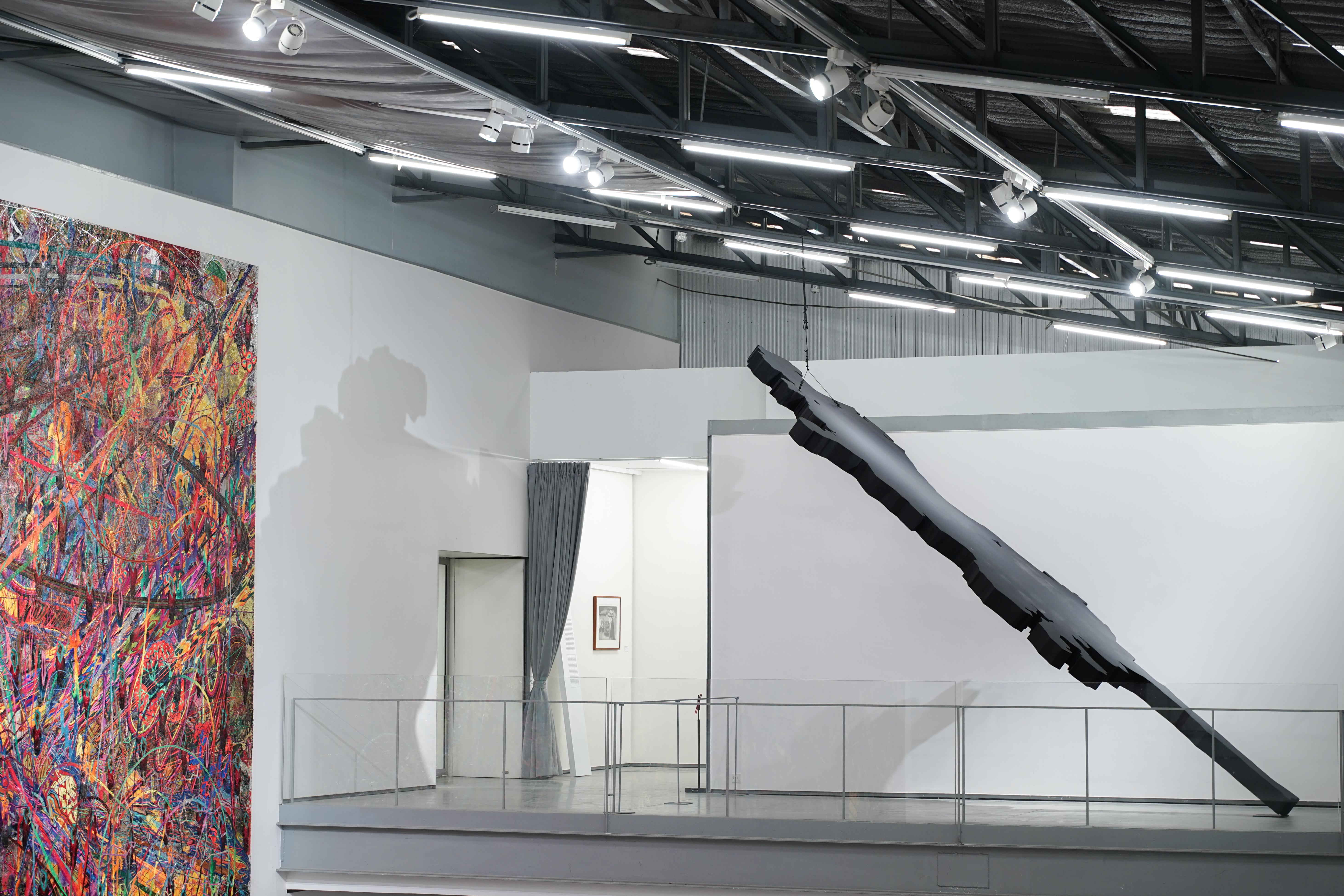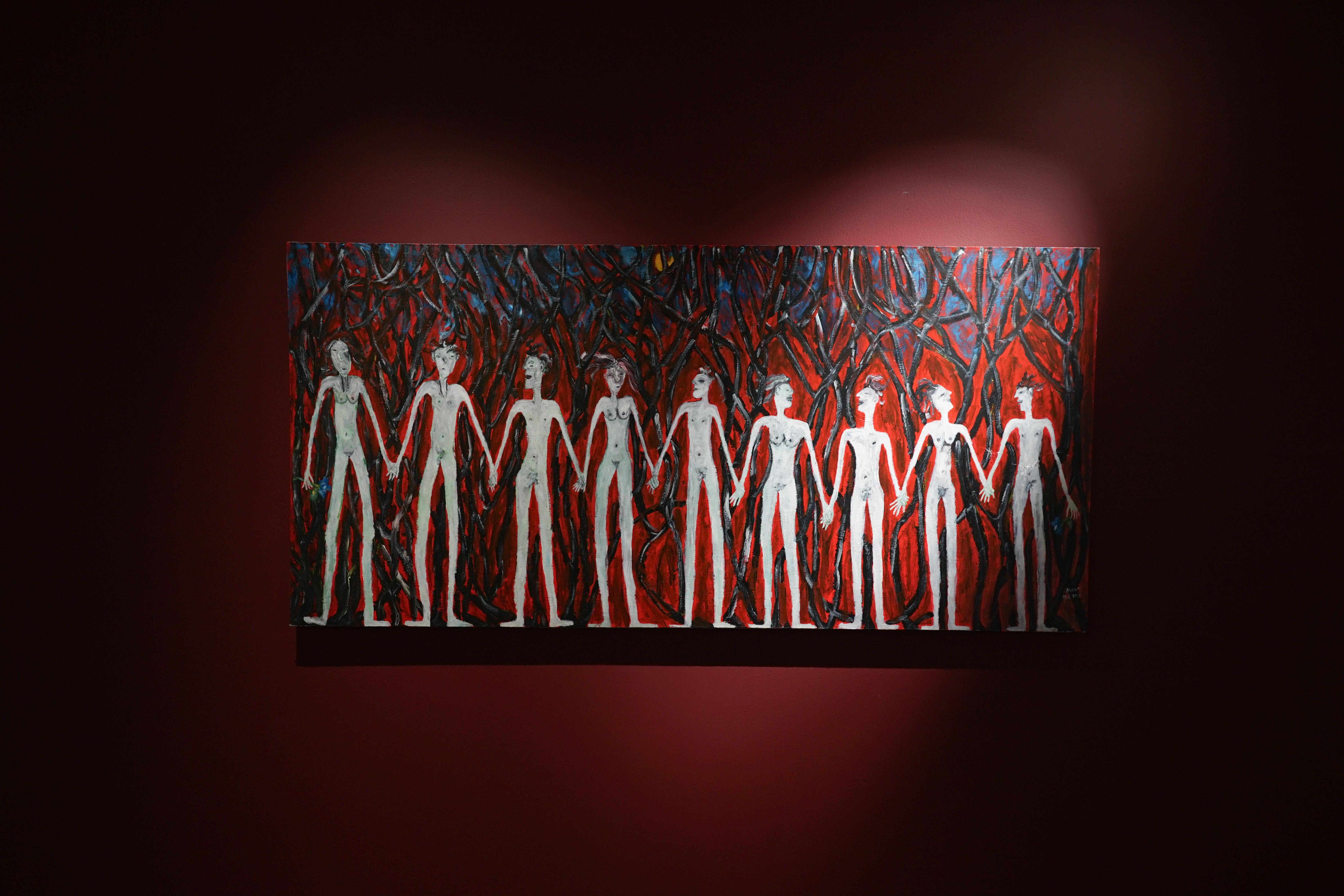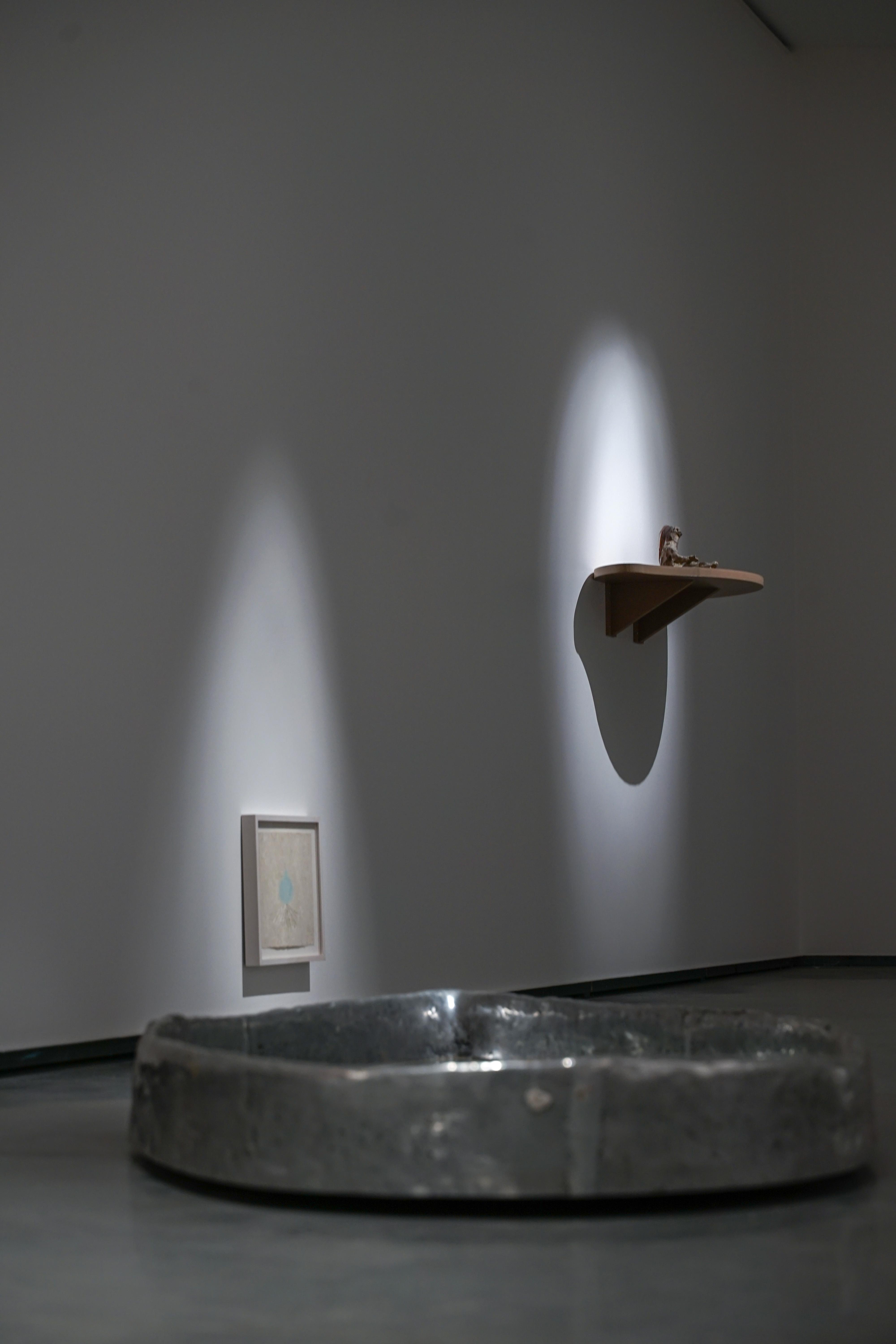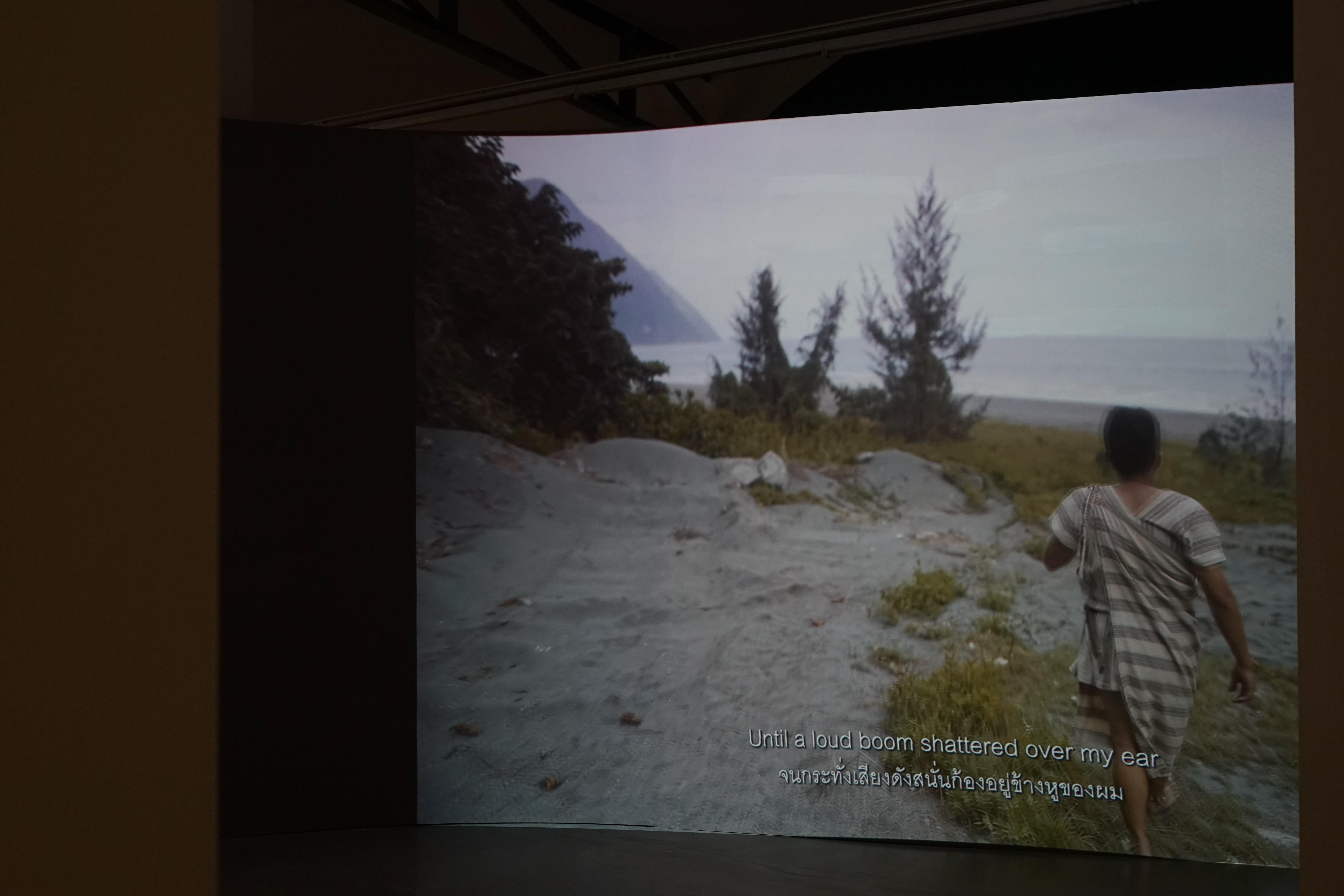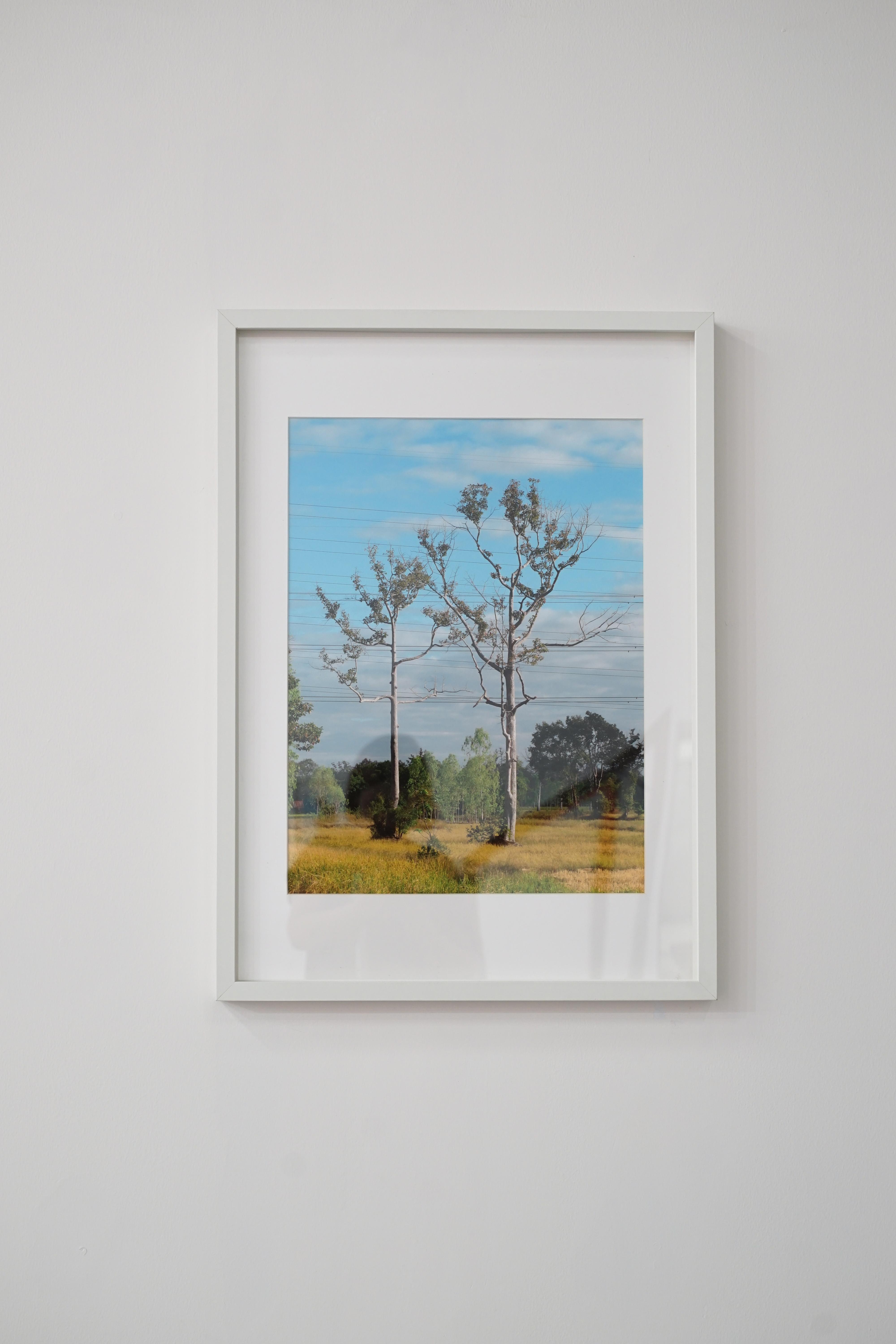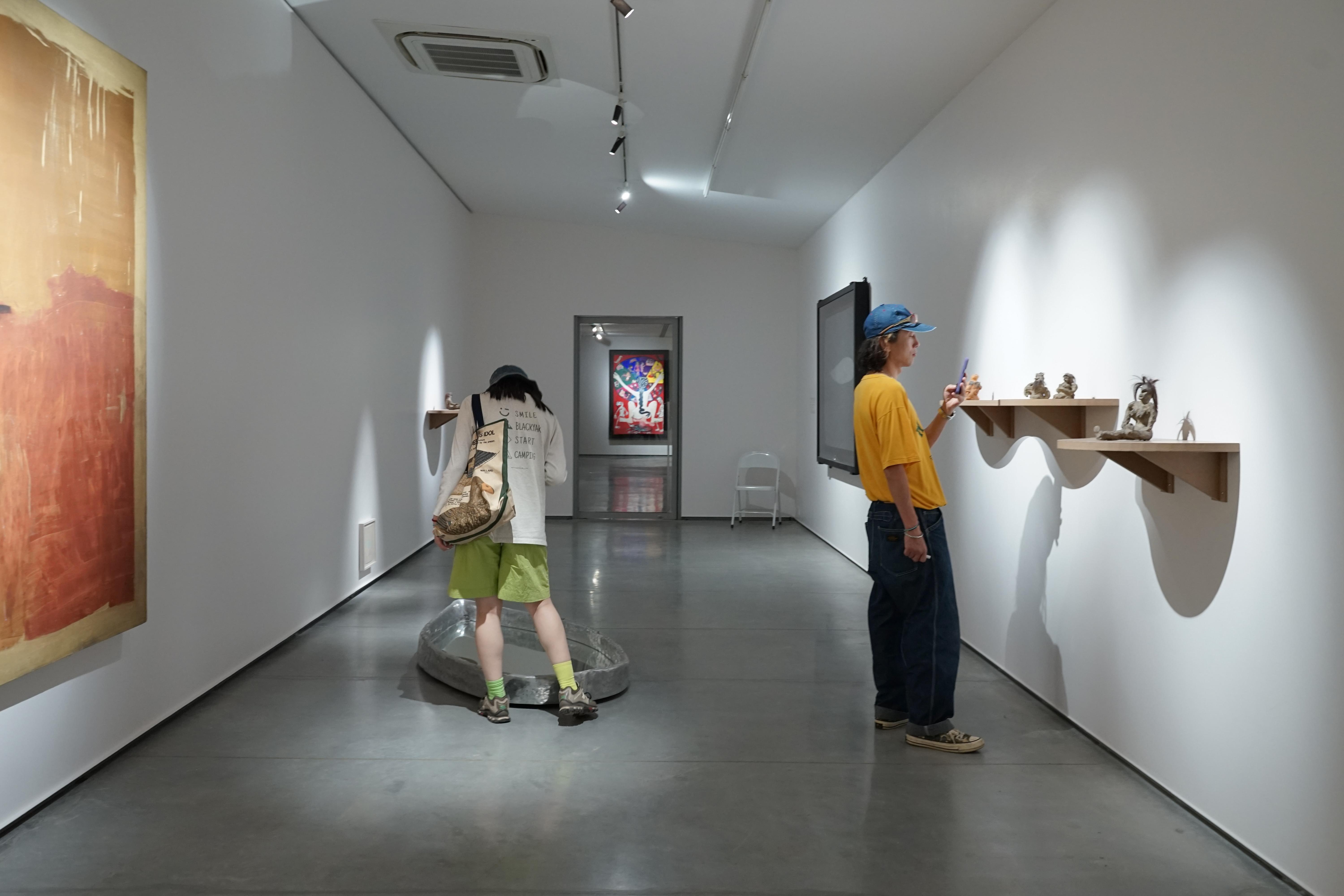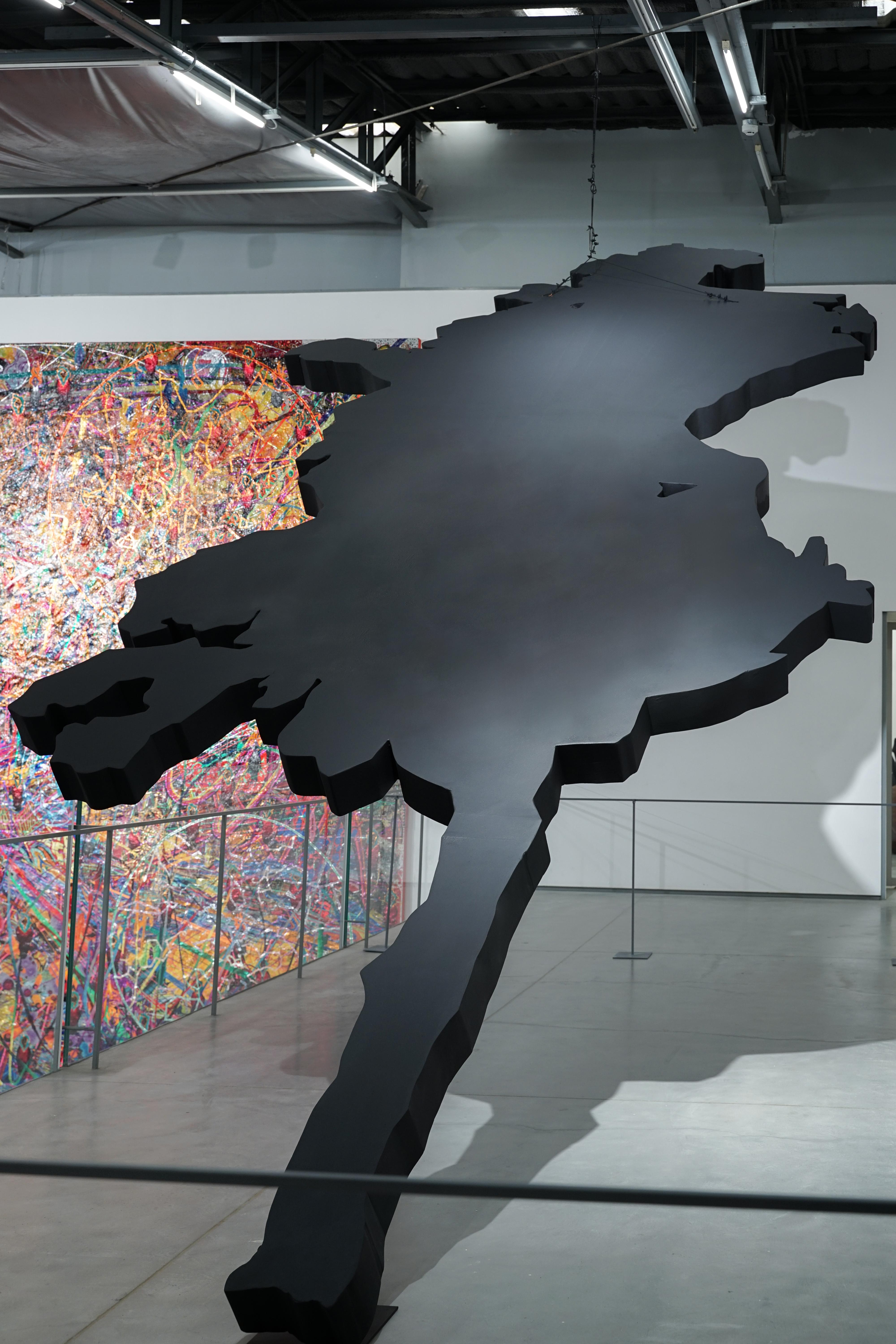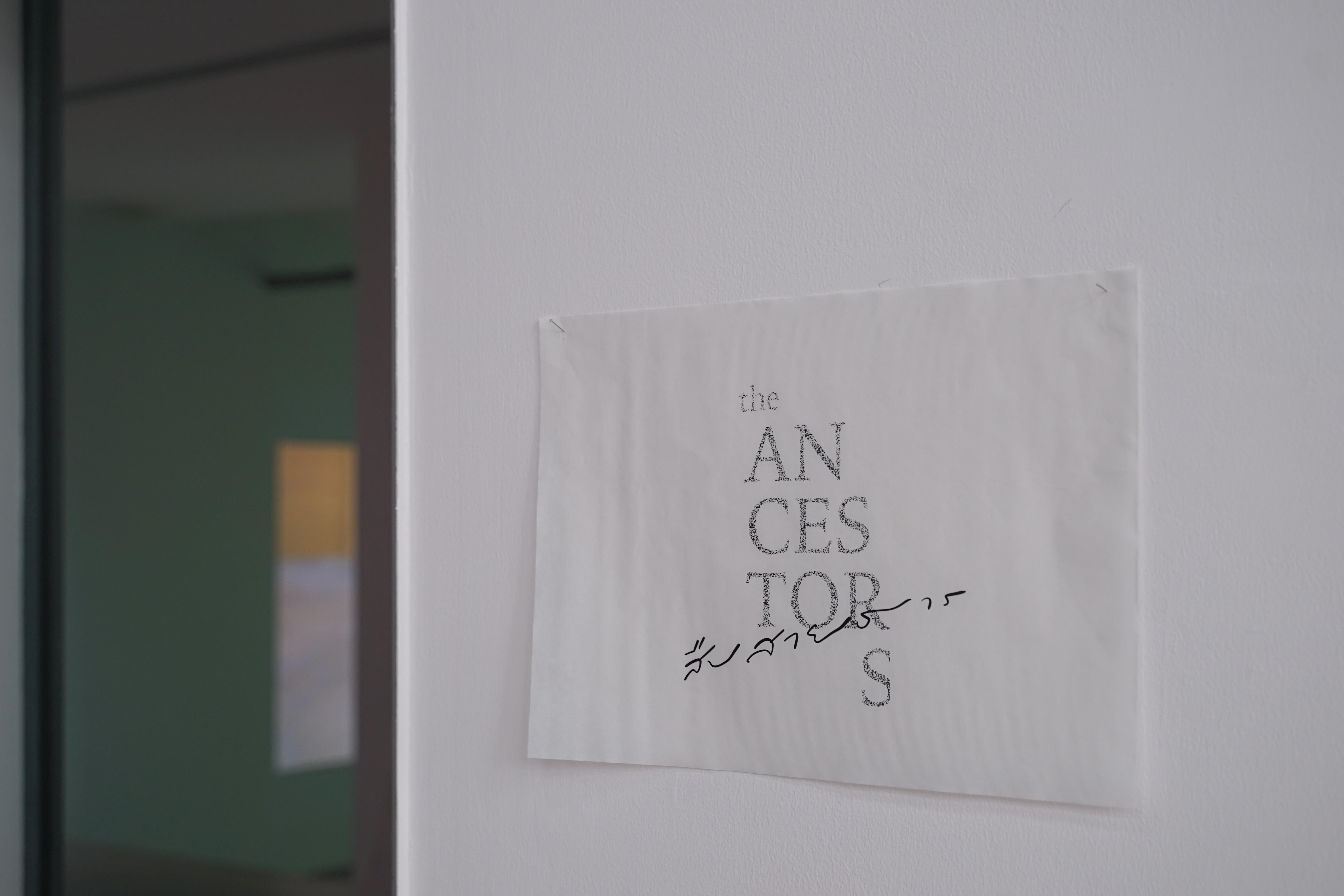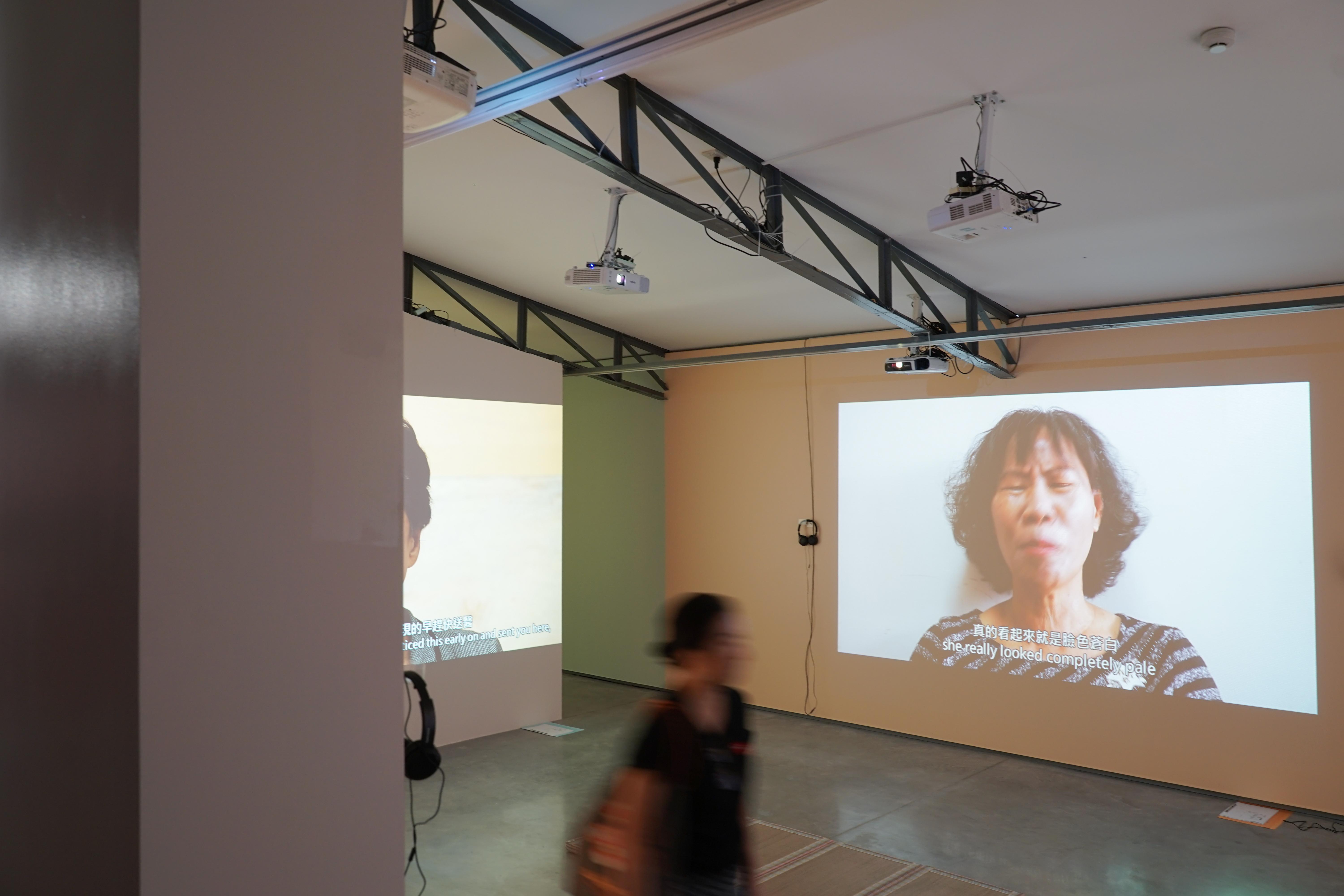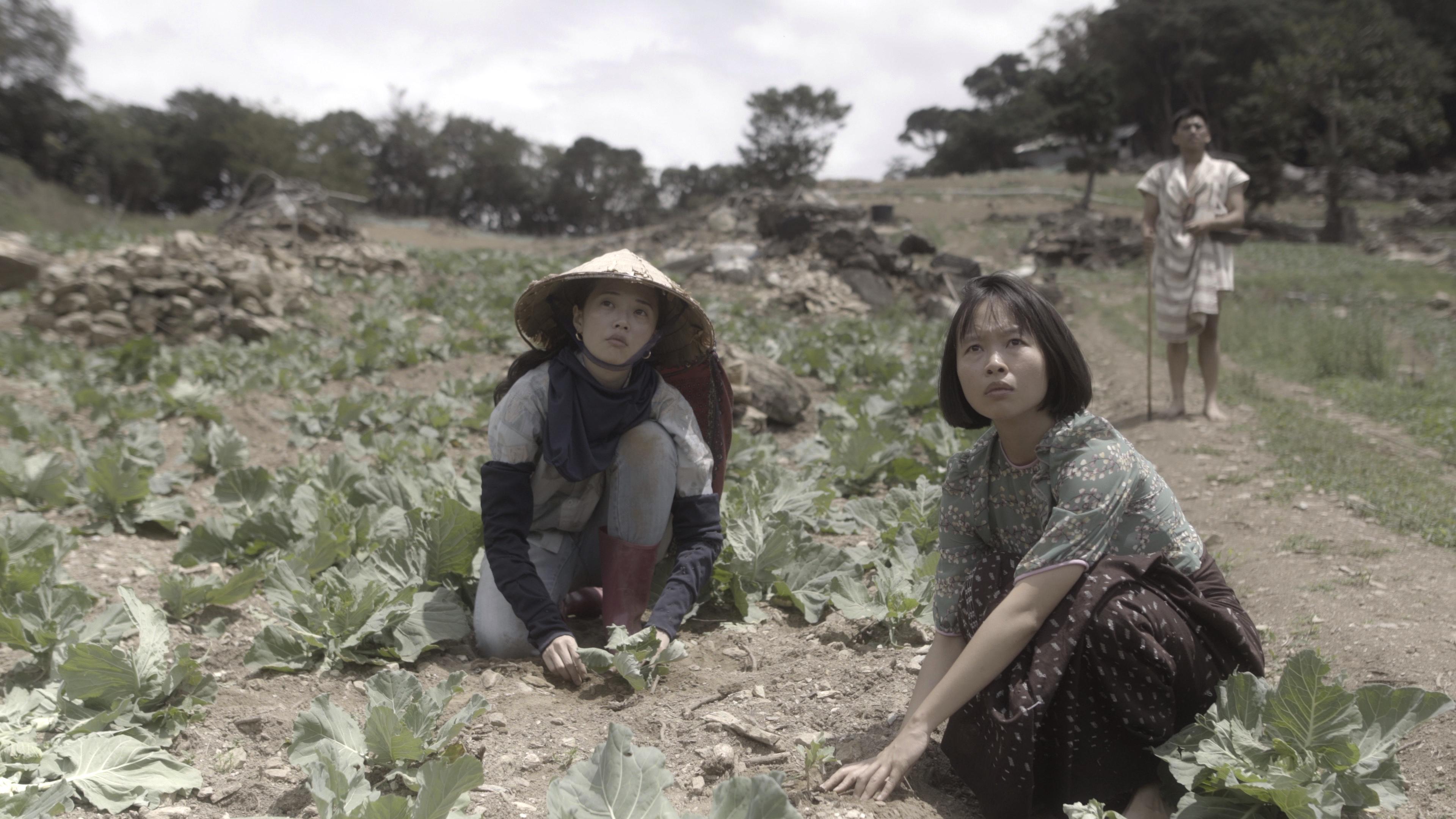
| EXHIBITION |
Group
The Ancestors
Busui Ajaw, Chien-Pei Chen, Chin-Yun Kuo, En-Man Chang, Jedsada Tangtrakulwong and Pinaree Sanpitak
MAIIAM Contemporary Art Museum is pleased to present The Ancestors, an exhibition that explores the close relationship between Thailand and Taiwan, highlighting their shared cultural, historical, and biological affinities. From local animism to the impacts of colonialism and modern technology, these landscapes are unique yet deeply interconnected, bound by both physical and emotional ties. The cycles that govern all life—birth, death, and survival—emerge in The Ancestors as unifying themes, though these inevitable forces are often unsettled by humanity's parallel desire to circumvent them.
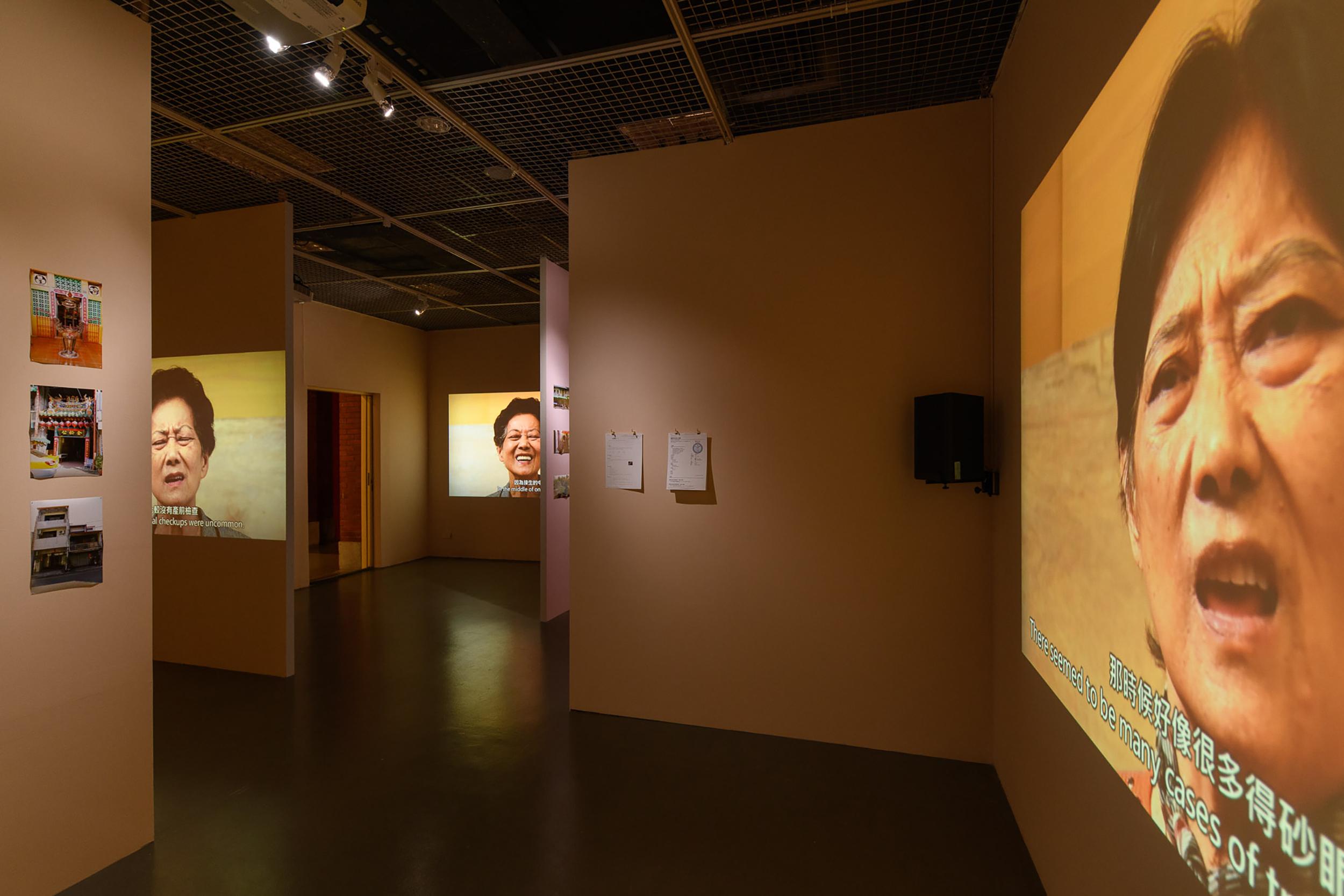
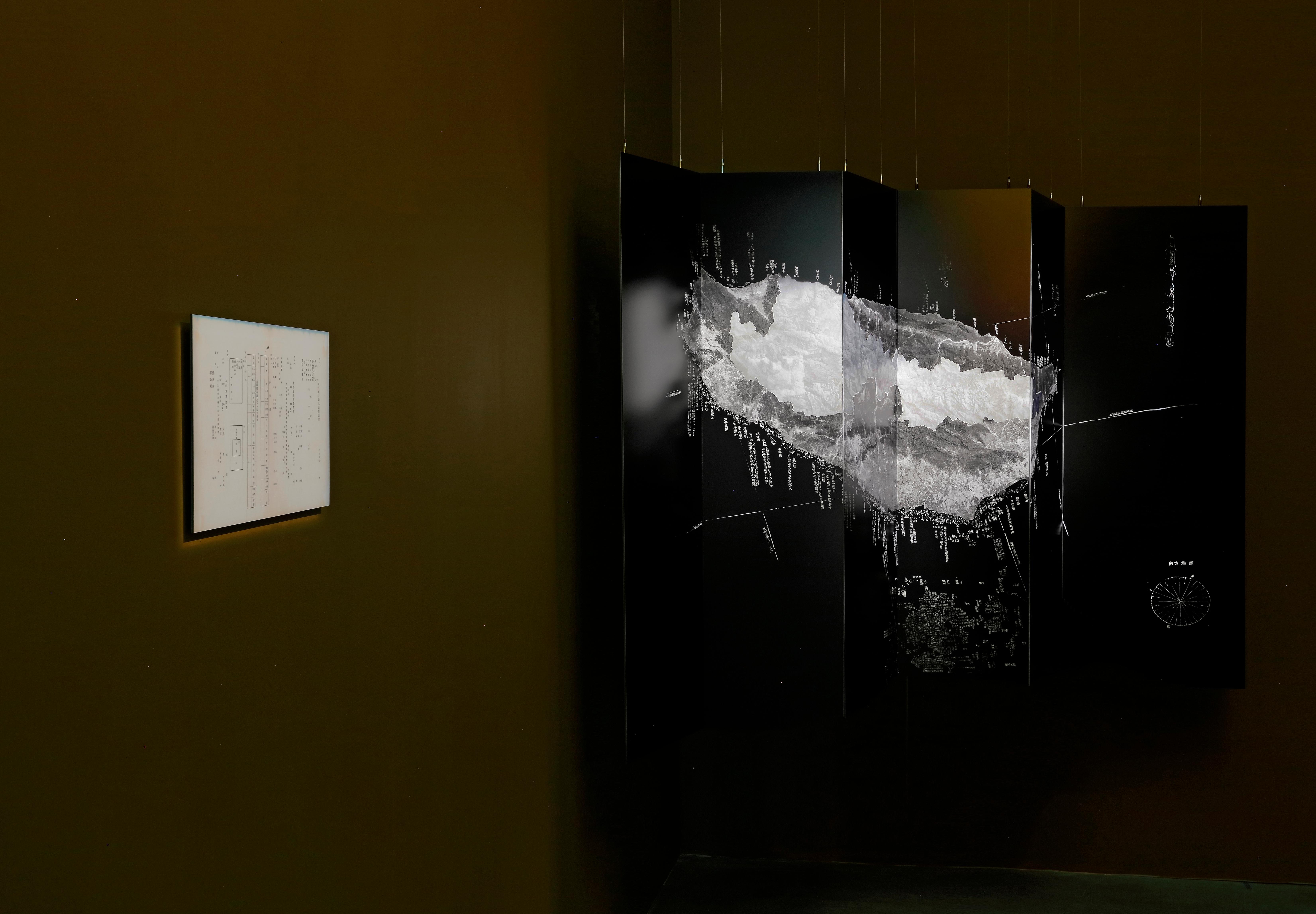
The exhibition features a diverse body of works, ranging from painting to multi screen video installations. It places the works of Pinaree Sanpitak, Busui Ajaw, and Jedsada Tangtrakulwong from MAIIAM Contemporary Art Museum’s collection in conversation with selected works by Taiwanese artists Chien-Pei Chen, Chin-Yun Kuo, and En-Man Chang. The Ancestors nurtures a dialogue that spans across seas and species, expanding the notion of kinship to consider connections not solely bound by blood, but by interactions within an ecosystem at a particular time.
Taking inspiration from American anthropologist Donna Haraway, the exhibition draws on the concept of natureculture, which seeks to unsettle anthropological notions of kinship that prioritize bloodlines as the primary vehicle for the transmission of culture.

The exhibition questions the idea of culture as a narrative written from a single perspective. At the same time, It challenges the concept that only humans preserve traditions, suggesting that the ancestors (those who came before) and descendants(those who came after) are not exclusive to our species but include other beings.
The Ancestors exhibition is made possible by the facilitation of MAIIAM Contemporary Art Museum, with the generous support of the Taipei Economic and Cultural Office in Thailand and the Taiwan Ministry of Culture.
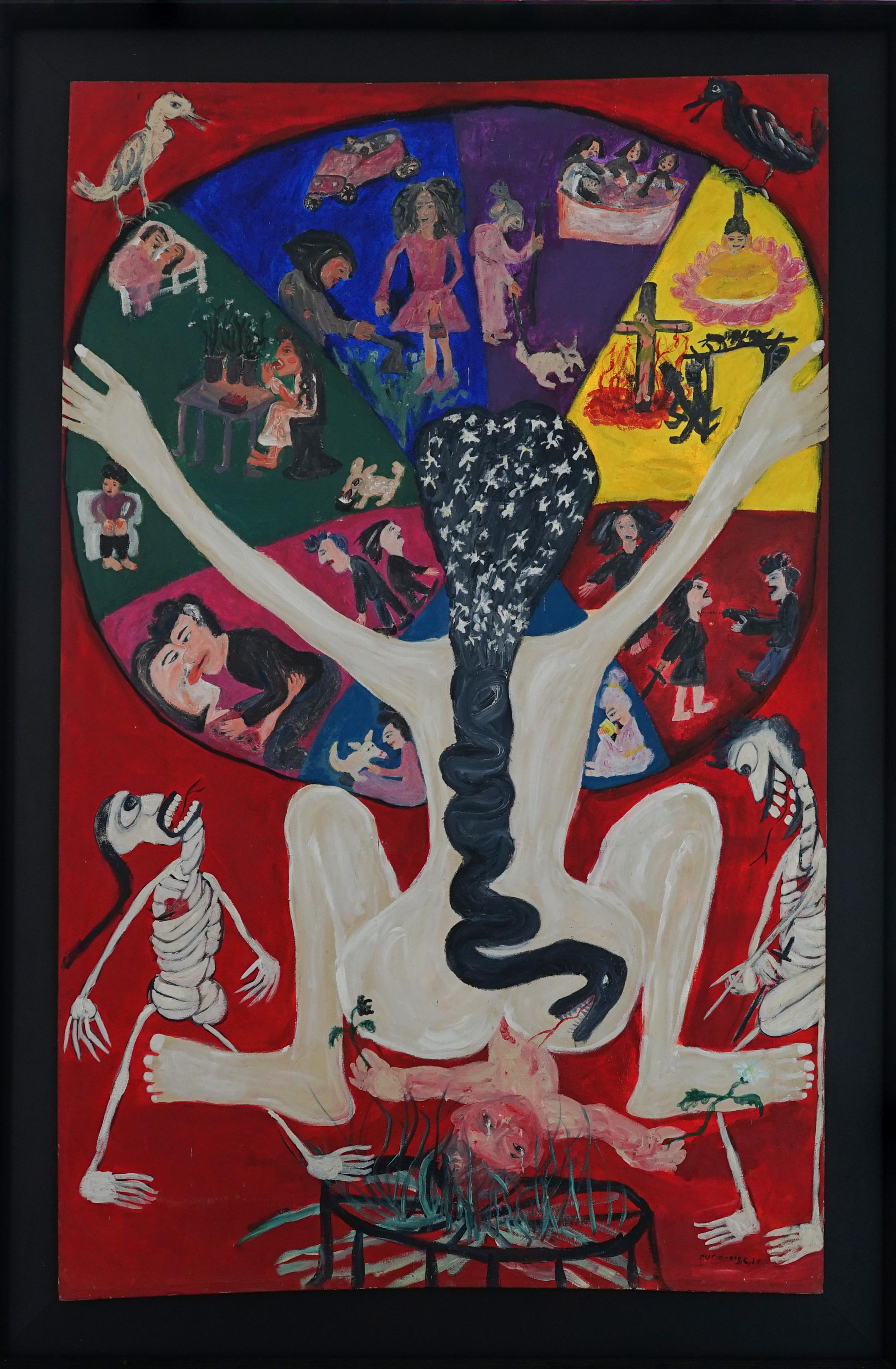
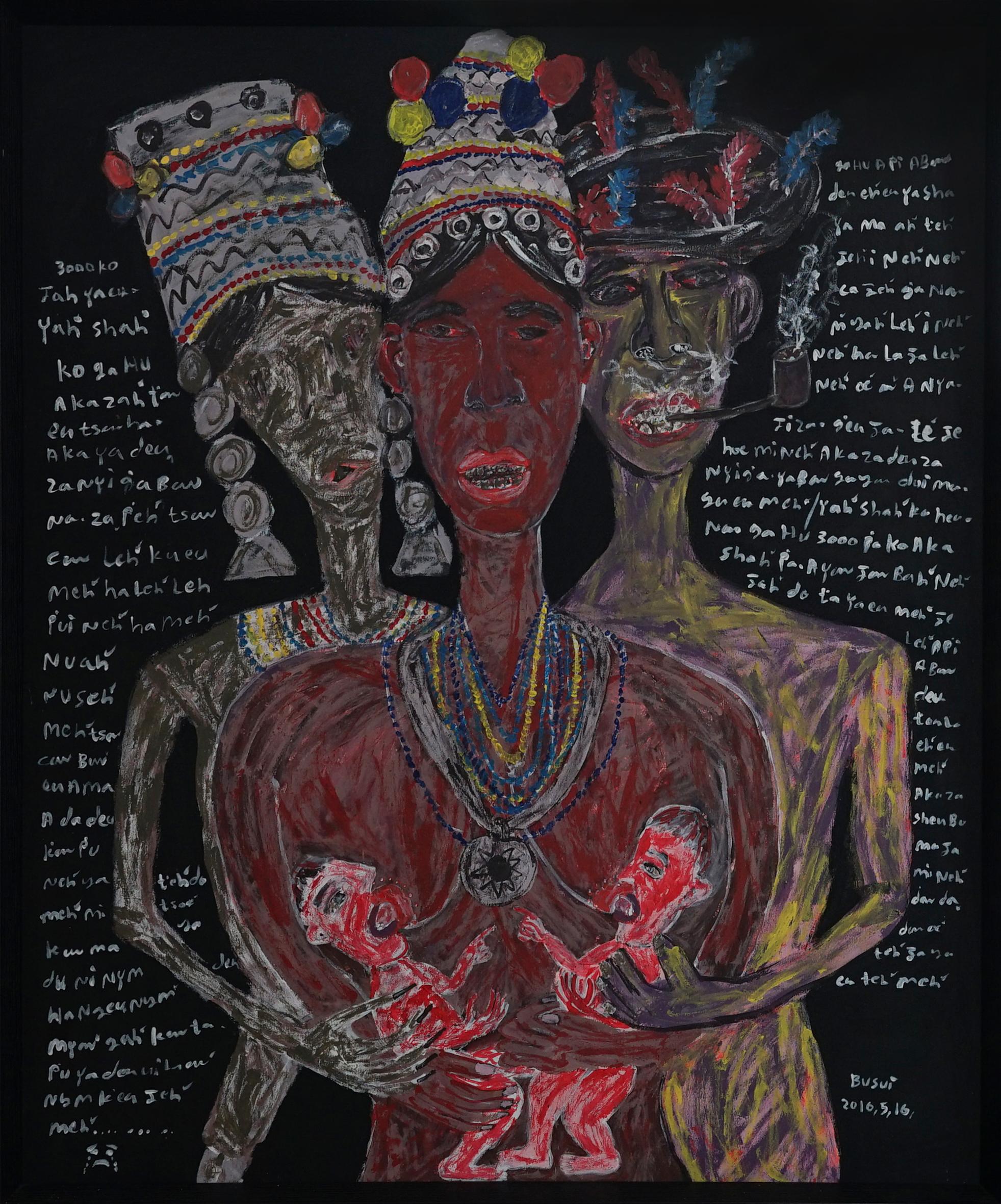
About Artist
Busui Ajaw( Thailand)
Born in 1986, Busui Ajaw is a self-taught painter whose works draw from her everyday experience as a woman from the Akha ethnic minority living and working in the contemporary world. Born in a remote mountainous region of Myanmar, the artist was forced to flee as a young child with her family after a military invasion of their land. Her practice relates to her unique upbringing. Part of the Akha community, a nomadic ethnic group from the highlands of mainland Southeast Asia, Ajaw is from a family of artisans. Coming from an oral culture, the practice of image-making was initially foreign to her. She began drawing at age 15 and has since developed an expressive painterly language to depict the seen and unseen, material and psychological.
Chin-Yun Kuo (Taiwan)
Born in 1989 in Taichung, on the eastern side of Taiwan. Kuo Chin-Yun graduated with a Master’s of Arts degree from the Weißensee Academy of Art Berlin (Kunsthochschule Berlin weißensee) and has been working between Taipei and Berlin since 2015. Her artistic practice employs repeated action of labor and walking as a relentless resistance to the real. Drawing on her experience of relocating to a foreign place. Her artworks revolve around the contemporary experience of migration, the material world in the context of post-colonialism, and the anthropogenic landscapes formed by the use of resources and human activities under neoliberalism. Challenging the collective consciousness created by economic and political myths, her works often comprise project-based research and are presented as installations, videos, performances and in-situ projects.
Chien-Pei Chen (Taiwan)
Born in 1955 in Taipei, Taiwan. After graduating from the National School of Arts (now National Taiwan University of Arts), Chen Chien-Pei traveled to Spain in 1984 where he graduated from the Art College of Bilbao University, Spain. His experience of being socially excluded when studying abroad and having his visa application complicated during that time, has allowed him to understand the importance of one’s home culture to foreign students. In 2021 “Mipaliw Land Art,” Chen presented his work Ama Mama Tama. Four tribes participated in the project, with eight interviewees across different age groups participating. A total of 32 interviewees were invited to tell the stories of their fathers. Together with the images of persecution from colonization in other countries, the artwork weaves a history of the indigenous communities spanning over a century.
En-Man Chang (Taiwan)
Born in Taitung, Chang En-Man currently lives and works in Taipei. Utilizing moving image, photography, installation, as well as creative forms of self-organising and collective projects, Chang's practice explores how the indigenous people of Taiwan negotiate the ever-shifting socio-cultural terrains and conditions for survival in contemporary Taiwan against the backdrop of modernization and urbanization. Rooted in her own experiences and heritage as a half-indigenous person, Chang excavates lost histories and narratives to explore the world at large. Since 2009 Chang has been investigating the connection between the history of imperialism and the modernization of Taiwan’s Indigenous people by tracing the travel routes of giant African snails. One of the world’s worst invasive species, they have wreaked havoc on the crop of the Paiwan group, an indigenous group where she grew up with her mother. Her work involves historical narratives, everyday life perspectives through indigenous wisdom.
Jedsada Tangtrakulwong (Thailand)
Born in 1972, Jedsada Tangtrakulwong currently lives and works in Chiangmai and Bangkok. He graduated from the San Francisco Art Institute in 1999 (BFA) and in 2006 from The Slade School of Fine Art, University College London (MFA). Jedsada Tangtrakulwong works primarily with site-specific installation, bringing together photography, sound, drawing and light to awaken audience perceptions of different spaces. Each body of work is developed from extended interactions with particular environments. Playing with light and sound, as well as built components, Tangtrakulwong tries to emulate the sensorial atmosphere of these different regions, bringing ‘the outside, inside’ as the artist puts it. Tangtrakulwong’s sensitivity to different habitats evokes a similar sensitivity that ran through the 1960s Land Art movement, and the architectural dimension of his practice also echoes the collaborative work of Christo and Jeanne-Claude.
Pinaree Sanpitak (Thailand)
Born in 1961, in Bangkok, Pinaree Sanpitak is one of the most established Thai conceptual artists of her generation. Her artistic practice revolves around the human body and form as a vessel of experience and perception. A recurring motif in her work, the female breast is distilled into its basic form of vessel and mound, resembling the Buddhist stupa (shrine) and offering bowl on occasion. Her sensorial inquiries also reveal a keen sensitivity towards a range of materials such as textiles, glass, ceramic and metal, informing her various approaches in collage, drawing, painting, printmaking, and sculpture

Kohkae Collective brings together independent artist/curators Fahmui Pimpakaporn Pornpeng, Rebecca Jensen & Ray JH Chang, who bonded over snacks, cigarettes and foraging in the arable land of urban Taipei in 2020. From Thailand, Australia & Taiwan, the group is playfully named for the perfect combination of peanuts - the most affordable nut in the world and local/ universal flavors like coconut or BBQ. Kohkae Collective are animated by the cuisines, languages, and the migratory paths of humans and the species they entangle in the process. Through making kin, they aim to unearth the affinities that transcend both borders and species
